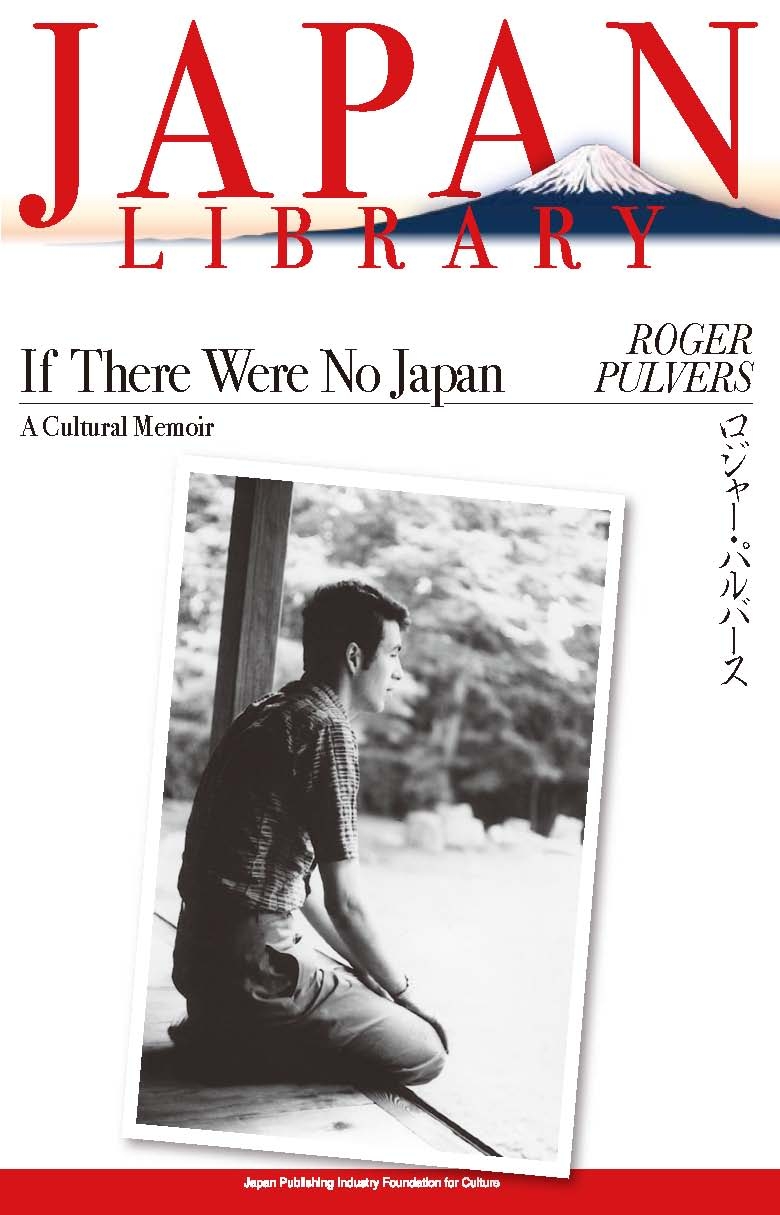If There Were No Japan: A Cultural Memoir
Award-winning author, playwright, theatre director, translator and journalist Roger Pulvers, who has immersed himself in Japanese culture for half a century, delivers a firsthand account of the country's customs and the profound changes occurring in contemporary Japanese society.
| Author | Roger Pulvers |
|---|---|
| ISBN | 978 - 4797672213 |
| Category | Biographies & Memoirs |
| Publication | December, 2011 |
| Estimated length | 320P |
| Size | 188 × 132 mm |
Originally published in Japanese, If There Were No Japan was acclaimed for its insights into Japanese life, bringing together aspects of history, culture and everyday life to paint a revealing portrait of the Japanese people and the pressing issues facing them today. This national bestseller was hailed as a roadmap for "innovation of the mind" —essential knowledge that could guide Japan out of the economic and psychological doldrums that have held sway for the past two decades.
Whether delving into ancient traditions or providing vivid accounts of contemporary customs, analyzing characters in Japanese fiction or recounting personal encounters with individuals, the author illuminates those inventive elements that have made much Japanese culture and design the envy of the world—and that signal a way forward into the twenty-first century.
 If There Were No Japan is a notable selection of the JAPAN LIBRARY collection, a government funded book translation project. Although this book is published primarily to be donated to public libraries, educational institutions, etc., commercial publication rights are available.
If There Were No Japan is a notable selection of the JAPAN LIBRARY collection, a government funded book translation project. Although this book is published primarily to be donated to public libraries, educational institutions, etc., commercial publication rights are available.
Whether delving into ancient traditions or providing vivid accounts of contemporary customs, analyzing characters in Japanese fiction or recounting personal encounters with individuals, the author illuminates those inventive elements that have made much Japanese culture and design the envy of the world—and that signal a way forward into the twenty-first century.
 If There Were No Japan is a notable selection of the JAPAN LIBRARY collection, a government funded book translation project. Although this book is published primarily to be donated to public libraries, educational institutions, etc., commercial publication rights are available.
If There Were No Japan is a notable selection of the JAPAN LIBRARY collection, a government funded book translation project. Although this book is published primarily to be donated to public libraries, educational institutions, etc., commercial publication rights are available. Reviews
"Roger Pulvers's life reads like an adventure story. His recollections of life in Japan in the 1960s are bound to become a part of Japan's national heritage."
--- Ryuichi Sakamoto, musician and composer
"This book is a delight. Few Japanese intellectuals have absorbed Japanese culture to the extent that Pulvers has. 'If There Were No Pulvers ... Japan Would Be a Much Less Interesting Country!'"
--- Seigo Matsuoka, essayist and broadcaster about If There Were No Japan
--- Ryuichi Sakamoto, musician and composer
"This book is a delight. Few Japanese intellectuals have absorbed Japanese culture to the extent that Pulvers has. 'If There Were No Pulvers ... Japan Would Be a Much Less Interesting Country!'"
--- Seigo Matsuoka, essayist and broadcaster about If There Were No Japan
About the Author
Mr. Pulvers has published more than 40 books in Japanese and English, including fiction such as The Death of Urashima Taro, General Yamashita's Treasure, The Honey and the Fires and The Dream of Lafcadio Hearn. His plays have been extensively performed in Australia, Japan and the U.S. He has also worked in film, having been assistant director to Nagisa Oshima on Merry Christmas, Mr. Lawrence. He co-wrote the script of the Japanese film Ashita e no Yuigon (Best Wishes for Tomorrow), winning the Crystal Simorgh Prize for Best Script at the 27th Fajr International Film Festival in Tehran. Roger received the Miyazawa Kenji Prize in 2008, and, in 2013, the Noma Award for the Translation of Japanese Literature.
FOREIGN EDITIONS
| Title | If There Were No Japan: A Cultural Memoir |
|---|---|
| Publisher | 一般財団法人出版文化産業振興財団 |
| Publication | March, 2015 |
| ISBN | 978 - 4916055446 |
